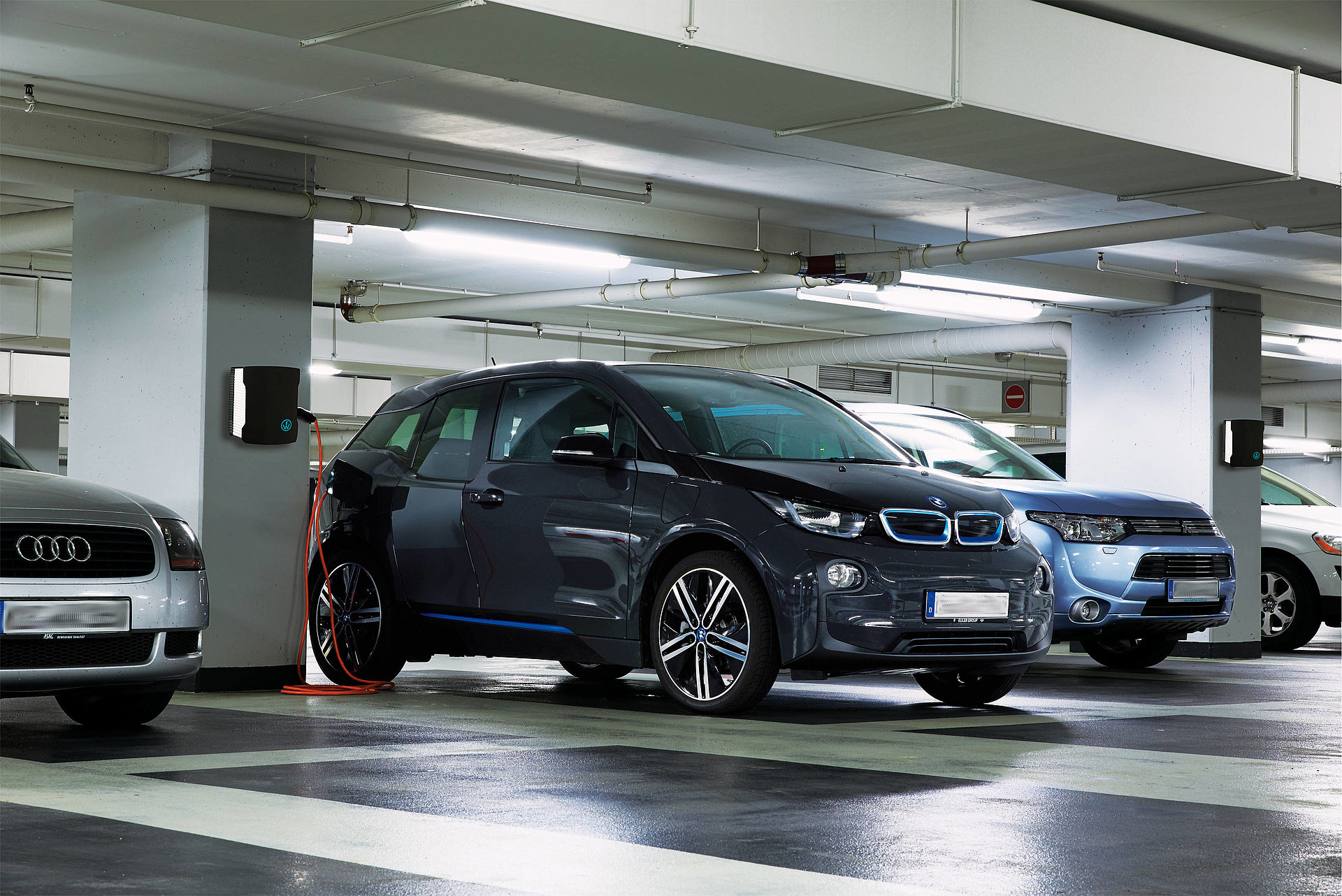We offer the most extensive range of products on the market for electromobility - charging solutions for the public, semi-public and private sectors for all current and future electric vehicles. Any multi-storey car park or corporate parking area can be equipped with our charging stations, as can the garage at home, with a modern wall box. All products satisfy the latest norms and standards. The modular structure of the equipment means that WALTHER-WERKE offers the maximum of flexibility.
The future of electromobility depends crucially on the charging infrastructure and the optimum interaction between components and systems. Before electric cars or e-bikes can move, they need to be charged. Charging should be easy and convenient and bring as many benefits as possible to operators and user groups.
In its coalition agreement, the German Federal Government has therefore setitself a clear objective and formulatedin its “National Electromobility Development Plan” that it wants to bring onemillion electric vehicles onto the streetby 2020, thus advancing to becomethe worldwide lead market for electromobility.
The first electric series-produced vehicles for the German market have already been produced in 2010. From 2011 on, many more will follow. In parallel, both automotive and battery manufacturers are doing researches with enormous efforts and considerable financial means on the further development of their electric vehicles. All these vehicles will be equipped with charging plug and socket devices which enable the quick and safe charging of the vehicle.
New energy schemes and sustainable mobility strategies will shape the 21st century.
The worldwide demand for energy is growing disproportionately. It is estimated that today‘s energy consumption will increase by another 50 % during the next 20 years - and during the next 50 years it will even double. In future, our society will have to deal with new energy schemes to a far greater extent. A sustainable mobility strategy will take an important role here, especially against the background that in Germany the traffic accounts for approx. 20 % of the total energy consumption.
This requires the establishment of a charging infrastructure on the largest possible scale in order to guarantee the security of supply for the electric vehicles.
Therefore the charging infrastructure has to be integrated into the networking and controlling of the entire power network - from the energy supplier to the network operator up to the consumer and the battery storages. In short: the charging infrastructure is an actively controlling element of a smart grid. The function of the charging infrastructure is- among others - to charge electric vehicles when there is an over capacity in the power grid and to feed it back into the grid at times of peak demand. But there is more: Besides miscellaneous safety aspects for users, the charging station has to identify users, activate them and interact with them. Fleet managers may want to assign charging priorities, energy providers need consumption transparency for invoicing. Others may want to ensure a hundred-percent utilization of renewable energies when charging.

The charging infrastructure can be placed in public or private areas and is thus subject to different requirements. Furthermore there are of course solutionsfor simple wall mounting. This still to be complete range of applications requires a lot of technical know-how and expertise.
Since 2008, WALTHER has been intensively working on the electromobility topic. Due to its 100 years plus of tradition as manufacturer of plug and socket devices, power distributors for outside areas, control, communication and billing systems, the topic has a technically well founded background at WALTHER. Because of this experience, and being member of the essential standardization committees for charging plug and socket devices and charging infrastructure (DKE and VDE for Germany and CENELEC and IEC on the international level), WALTHER was able to actively shape and drive forward the developments. Projects with worldwide leading automotive manufacturers, energy suppliers and other partners in development have led to the fact that today, WALTHER has built up a leading technological positionon the market and is thereby specializing on the entire range of products between the vehicle and the power grid.